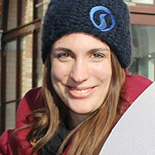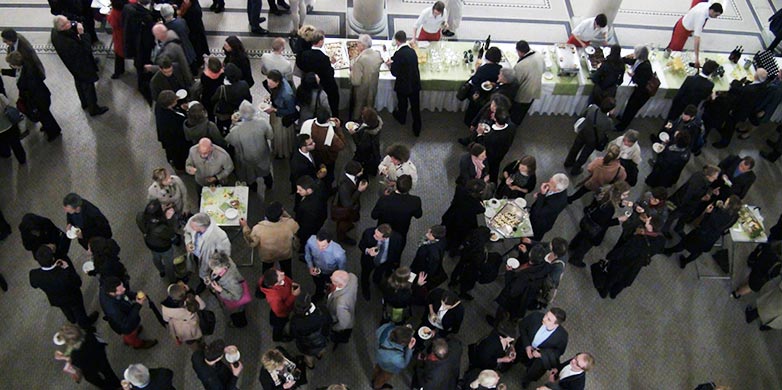A plea for Master's ceremonies that are a source of pride
Master's ceremonies are high points in students' lives. That's why VSETH (Student Union) President Julia Wysling is pleading in her column for Master's ceremonies that really fill students with pride.
For many students, the end of the spring semester also means the end of their time at ETH Zurich. Most of them will probably only set foot on campus one more time: for the Master's ceremony, which, depending on their department, may take place a good year after they finish studying.
Their expectations of this ceremony are considerable: after spending an average of five years at the University, investing a great deal of sweat, blood and tears in their studies and, hopefully, also having a good time at ETH, they hope to have a worthy send-off.
In my experience, the effort made on the part of ETH Zurich to live up to these expectations leaves something to be desired in many fields of study.
The organisation of Master's ceremonies is left to the discretion of the departments. As a result, we see Master's ceremonies which could not be more different: in one department, for example, students have until now had to organise their graduation ceremonies themselves, with funding from their subject society, while in another department, the roses that were being given out as part of the presentation ceremony ran out halfway through.
A day to remember
There are of course examples of Master's ceremonies at ETH Zurich where you can see that the department has gone to a lot of trouble – but even then it is far from a truly ceremonious event that fills you with pride, a day to remember for the rest of your life.
Most of us can probably think of good examples of graduation ceremonies: every other Hollywood film for teenagers includes one. These images of ceremonies with robes, hoods and emotional speeches also define the ideas that Swiss people have about this important day in their lives – so the disappointment when the reality turns out to be rather different is accordingly great.
In my opinion, EPFL also sets a good example. There, the graduation ceremonies for all graduates take place on the same day: first of all together and then separately, by subject, but it is always a big day for all the families.
It would not be very difficult to enhance the Master's ceremonies at ETH Zurich a little. Responsibility does not have to be taken away from the departments – it would be enough to give them sufficient support to organise a decent ceremony for their graduates, for example by providing them with enough roses.
ETH Alumni could win better publicity
The option of giving the ceremonies an individual, department-specific touch and perhaps giving the graduates the chance to help arrange them should certainly remain. Providing the basic framework that I have described is not rocket science and could, in my opinion, be made the responsibility of ETH Alumni – where else would they be so close to their future target market, and what event, apart from matriculation day, is such a defining feature of ETH Zurich as an impressive Master's ceremony?
The whole event would even become a win-win situation: with a good, timeless concept and a few hours' work, I suggest that ETH Alumni could win better publicity for itself than almost anywhere else, while the proud Master's graduates would enjoy a ceremony that is worthy of the work they have put in.
About the author

In November 2013, Julia Wysling was elected President of VSETH by the Council of Members, the highest body in the Student Association VSETH. She was born in Zurich in 1990 and grew up in Zurich, Vienna and most recently in Uster. Having successfully completed her studies at the Kantonsschule Rämibühl, which included an exchange year in Australia, she has been studying mathematics at ETH Zurich since 2009. Julia had previously already played an active part in the Mathematicians’ and Physicists’ Association (VMP), in various VSETH committees and in the SoNaFe/WiNaFe Association, which organises the summer and winter end-of-semester parties at ETH Zurich. One aspect of her work in VSETH, which she finds particularly fascinating, is how the students’ political representation influences the range of services on offer. In her free time, Julia spends her time training for a triathlon.

